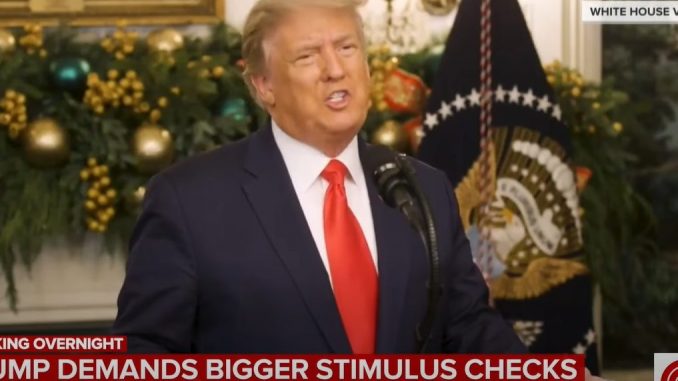
President Donald Trump vetoed the annual National Defense Authorization Act (NDAA) Wednesday, following through on his pledge to do so earlier this week.
The president cited the bill’s provisions allowing the military to axe names of Confederate leaders from military bases and its absence of reforms to big tech protections from third-party liability online granted under Section 230 of the Communications Decency Act.
Section 230 allows publishers such as Twitter and Facebook to receive legal protections no other publishers receive online, assisting in their monopoly of public discourse. In his veto statement, Trump called the lack of Section 230 alterations a national security and election integrity threat.
The 4,517-page bill, passed by overwhelming bipartisan majorities in both houses of Congress, also would have offered pay raises for U.S. troops, modernization of equipment, and stricter congressional review before a president could draw U.S. forces down from foreign stations such as Germany or Afghanistan.
“Unfortunately, the Act fails to include critical national security measures, includes provisions that fail to respect our veterans and our military’s history, and contradicts efforts by my administration to put America first in our national security and foreign policy actions,” Trump wrote in a statement to Congress, reported CNBC.
The president’s veto of the colossal $740 billion legislation came less than 24 hours after Trump threatened to veto a broader spending bill to fund the government and spend another nearly trillion dollars in the name of COVID, railing against the combined $2.3 trillion package as a pork-stuffed product of the beltway swamp that is routine in the nation’s capital.
“Among the more than 5,000 pages in this bill, which nobody in Congress has read because of its length and complexity. It’s called the COVID relief bill, but it has almost nothing to do with COVID,” Trump said.
The president complained that the proposal sent excessive funds to foreign governments and allocated money towards federal art institutions that remain closed. Neither of these has anything to do with direct COVID relief to the American people suffering under lockdowns.
— Donald J. Trump (@realDonaldTrump) December 23, 2020
Via The Federalist
